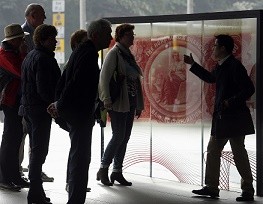Chinese authorities have asked banks to submit plans to make their internal technology systems more secure and controlled based on government standards.
The government set the deadline on March 22, Sunday.
Under the rule, companies are required to provide the government with proprietary source codes, considered as a software's key ingredient, and encryption keys which protect sensitive information. The companies are also urged to use Chinese encryption keys and submit their plans for government testing.
The Wall Street Journal reported that some industry insiders think that the government order was only a ploy for banks to switch to Chinese vendors and they believe that this would affect major U.S. firms and suppliers.
U.S. Trade Representative Robert Holleyman visited China last week where trade groups said he discussed the tech rules with Chinese officials, as U.S. Embassy officials also met with the country's banking regulators on March 12, Thursday.
Tech companies are still awaiting developments on how banks will deal with the rule.
Although bank regulators have set the deadline on March 22, the regulation gives banks until 2019, where at least three-quarters of their systems are qualified as controllable and secure.
The Wall Street Journal reported that the requirements vary, ranging from the purchase of desktop computers to studying alternatives to companies' mainframe servers.
A banking executive told the online paper that many Chinese banks have already formed their own teams to analyze and evaluate ways to reduce dependence on foreign technology, which could take a year-long process.
According to the report, Western officials and trade groups see Beijing's plan as a means to deter foreign spying, but is also aimed to pressure companies, especially foreign vendors, in the fast-growing Chinese tech market.




























